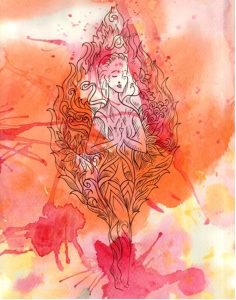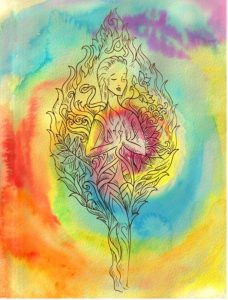Module 4: Related Practice Issues: Trauma-Informed Care, Supporting Strength – based and Resiliency Approaches, Primordial Prevention
Trauma Informed Care
“Nature and science have shown us that any untended wound leaves unresolved injury which can manifest in other ways. These untended wounds allow unresolved pain, loss and grief to continue for the individual and the community. It is only through decolonising the assumed privilege of the non-Indigenous model of health and healing that we can provide genuine culturally safe healing.”

A traumatic event is described as ‘an experience or multiple experiences, that overwhelm an individual’s ability to cope or integrate the ideas and emotions involved in that experience’ (The Indigenous Health Writing Group of the Royal College, 2019). Indigenous people have experienced historic and contemporary trauma that is considered to have an intergenerational impact on families, communities and entire populations. It is considered to be compounded over time and generate a ‘negative cumulative effect’ that results in what is described as a ‘legacy of physical, psychological and economic disparity’.
It is noted that for Indigenous peoples, the historic trauma can also be as a result of imposed colonial assimilative policies and laws aimed at attempted cultural genocide (Turpel-Lafond, 2020). Yellow Horse Braveheart describes historical trauma as ‘cumulative emotional and psychological wounding’ and indicates it can occur over one’s lifespan and across generations (The Indigenous Health Writing Group of the Royal College, 2019).
Culturally safe approaches to care for Indigenous peoples requires a trauma-informed lens which essentially means changing your focus from a deficit model of what is ‘wrong’ with the patient to a strengths-based approach of what is the story of that patient (Tujague & Ryan, 2023). For example, Olson describes an Indigenous trauma-informed approach one that recognizes the social historical impacts that have disrupted Anishinaabe Bimatisiwin (Indigenous life), and the revitalization of this worldview that naturally encompasses strategies of anti-oppression, non-interference and client self-determination (Learning Network & Knowledge Hub, 2018).

The RCPS advises that understanding of intergenerational trauma will enhance the capacity of HCPs to be compassionate and collaborative and to view behaviour within a broader context and challenge belief systems and attitudes that negatively impact Indigenous patients (The Indigenous Health Writing Group of the Royal College, 2019).
More specific to Indigenous women, colonization continues to result in intergenerational trauma including sexual exploitation and systematic violence and this is captured by the gender-based violence Indigenous women and girls face to systemic gendered racism and patriarchy (The Indigenous Health Writing Group of the Royal College, 2019).
Tujague, N., & Ryan, K. (2023). Towards Cultural Safety: Cultural Safety in Trauma-Informed Practice from an Indigenous Perspective. In N. Tujague & K. Ryan, Cultural Safety in Trauma-Informed Practice from a First Nations Perspective (pp. 43–63). Springer International Publishing. https://doi.org/10.1007/978-3-031-13138-7_3
Indigenous Primary Health Care Council. (2022). Indigenous Health Systems Transformation (pp. 1–21). https://iphcc.ca/wp-content/uploads/ninja-forms/2/Indigenous-HST_Booklet.pdf
Turpel-Lafond, M. E. (2020). In Plain Sight Addressing Indigenous-specific Racism and Discrimination in B.C. Health Care (pp. 1–74). https://engage.gov.bc.ca/app/uploads/sites/613/2020/11/In-Plain-Sight-Summary-Report.pdf
Tujague, N., & Ryan, K. (2023). Towards Cultural Safety: Cultural Safety in Trauma-Informed Practice from an Indigenous Perspective. In N. Tujague & K. Ryan, Cultural Safety in Trauma-Informed Practice from a First Nations Perspective (pp. 43–63). Springer International Publishing. https://doi.org/10.1007/978-3-031-13138-7_3
Learning Network & Knowledge Hub (Director). (2018, June 28). Trauma-Informed Interventions through an Indigenous Worldview presented by Brianna Olson [Video recording]. https://www.youtube.com/watch?v=KYuV0hVf06U
